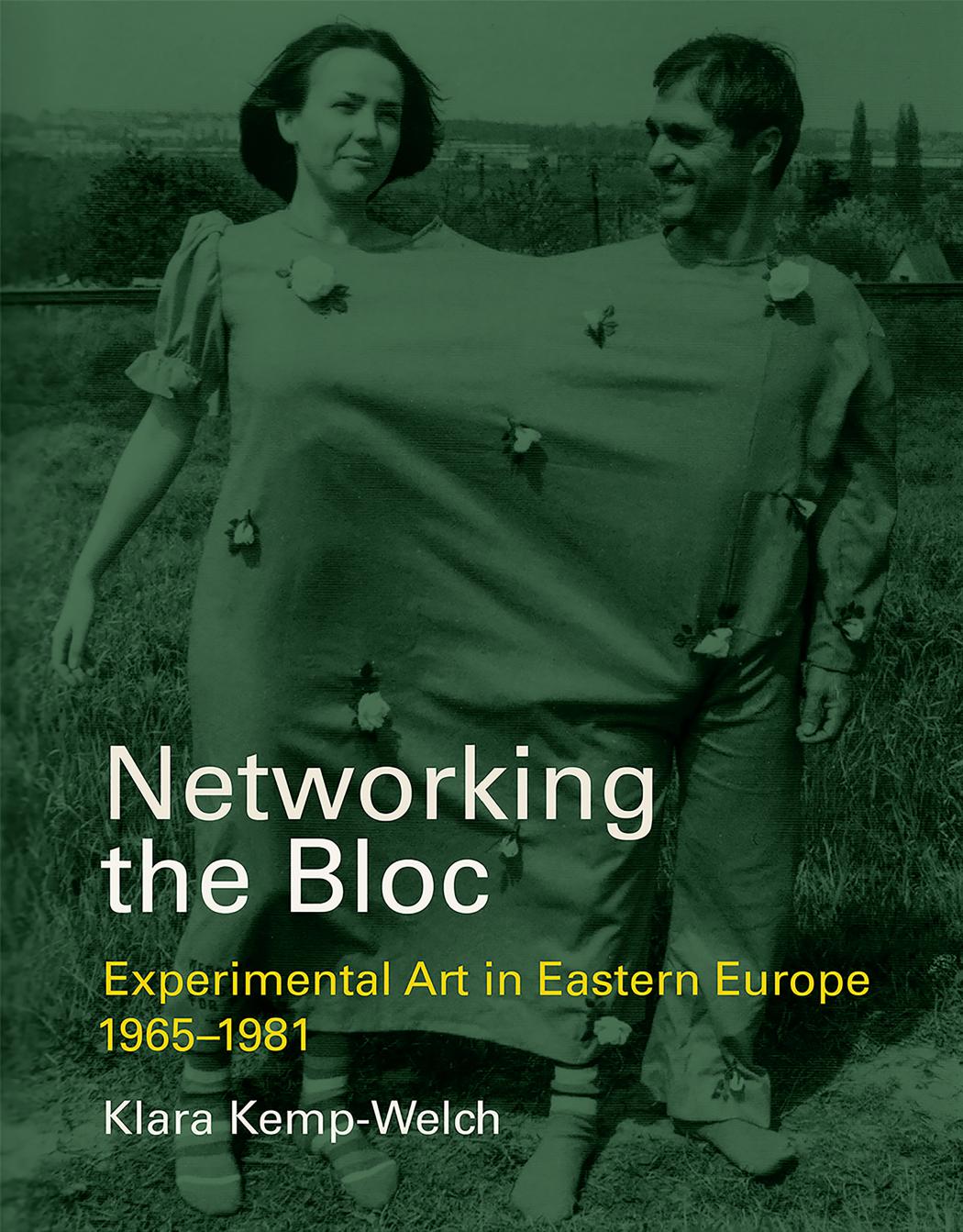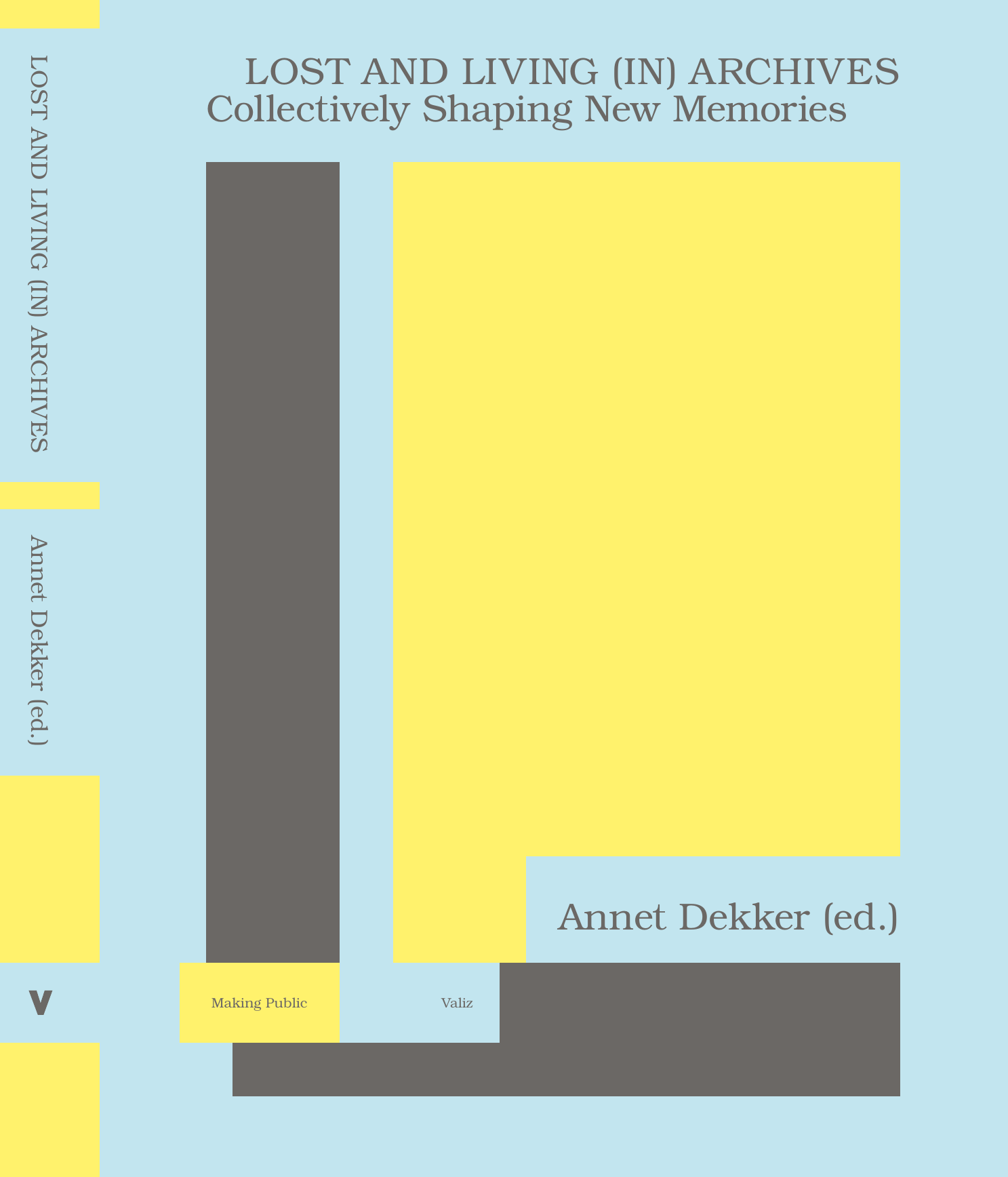Klara Kemp-Welch: Networking the Bloc: Experimental Art in Eastern Europe 1965-1981 (2019)
Filed under book | Tags: · 1960s, 1970s, art history, avant-garde, central europe, cold war, collaboration, community, conceptual art, documentation, east-central europe, eastern europe, experimental art, language, mail art, neo-avant-garde, networks, performance art

“Throughout the 1970s, a network of artists emerged to bridge the East-West divide, and the no less rigid divides between the countries of the Eastern bloc. Originating with a series of creative initiatives by artists, art historians, and critics and centered in places like Budapest, Poznań, and Prague, this experimental dialogue involved Western participation but is today largely forgotten in the West. In Networking the Bloc, Klara Kemp-Welch vividly recaptures this lost chapter of art history, documenting an elaborate web of artistic connectivity that came about through a series of personal encounters, pioneering dialogues, collaborative projects, and cultural exchanges. Countering the conventional Cold War narrative of Eastern bloc isolation, Kemp-Welch shows how artistic ideas were relayed among like-minded artists across ideological boundaries and national frontiers.
Much of the work created was collaborative, and personal encounters were at its heart. Drawing on archival documents and interviews with participants, Kemp-Welch focuses on the exchanges and projects themselves rather than the personalities involved. Each of the projects she examines relied for its realization on a network of contributors. She looks first at the mobilization of the network, from 1964 to 1972, exploring five pioneering cases: a friendship between a Slovak artist and a French critic, an artistic credo, an exhibition, a conceptual proposition, and a book. She then charts a series of way stations for experimental art from the Soviet bloc between 1972 and 1976—points of distribution between studios, private homes, galleries, and certain cities. Finally, she investigates convergences—a succession of shared exhibitions and events in the second half of the 1970s in locations ranging from Prague to Milan to Moscow. Networking the Bloc, Kemp-Welch invites us to rethink the art of the late Cold War period from Eastern European perspectives.”
Publisher MIT Press, 2019
ISBN 9780262038300, 0262038307
xi+468 pages
Reviews: Cristian Nae (ARTMargins, 2019), Denisa Tomkova (H-Net, 2020), Henry Meyric Hughes (Critique d’art, 2020).
PDF (17 MB)
Comment (0)Annet Dekker (ed.): Lost and Living (in) Archives: Collectively Shaping New Memories (2017)
Filed under book | Tags: · activism, archive, archiving, art, collectivism, digital media, documentation, internet, living archive, media, media activism, media culture, memory, web
“Archives are collections of records that are preserved for historical, cultural and evidentiary purposes. As such, archives are considered as sites of a past, places that contain traces of a collective memory of a nation, a people or a group. Digital archives have changed from stable entities into flexible systems, at times referred to with the term ‘Living Archives’. In which ways has this change affected our relationship to the past? Will the erased, forgotten and neglected be redeemed, and new memories be allowed? Will the fictional versus factual mode of archiving offer the democracy that the public domain implies, or is it another way for public instruments of power to operate? Lost and Living (in) Archives shows that archives are not simply a recording, a reflection, or an image of an event, but that they shape the event itself and thus influence the past, present and future.
Contributors: Babak Afrassiabi, Dušan Barok, Tina Bastajian, Nanna Bonde Thylstrup, Özge Çelikaslan, Annet Dekker, Olia Lialina, Manu Luksch, Nicolas Malevé, Aymeric Mansoux, Michael Murtaugh, Josien Pieterse, Ellef Prestsæter, Robert Sakrowski, Stef Scagliola, Katrina Sluis, Femke Snelting, Igor Štromajer, Nasrin Tabatabai.”
Publisher Pia Pol, Valiz, Amsterdam, 2017
Making Public series
Creative Commons BY-NC-ND 3.0 NL License
ISBN 9789492095268, 9492095262
285 pages
Reviews: Alessandro Ludovico (Neural, 2018), Natacha Yahi (Critique d’art, 2019, EN/FR).
PDF (16 MB)
Comment (0)Marco Scotini, Elisabetta Galasso (eds.): Politics of Memory: Documentary and Archive (2017)
Filed under book | Tags: · archive, cinema, documentary, documentation, film, memory, migration, politics, war

“The anthology Politics of Memory aims to investigate the document as such, as an objective trace left by events, as material proof or the creation of reality – the strategies with which they transform a state of memory into State memory, those by means of which a historical removal is enacted, those, ultimately, in which there is an attempt to challenge permanent or temporary amnesia, opening up to the future. The artists and filmmakers contributing to this publication represent the most advanced area on an international scale of a research that inaugurates a new relationship between artistic practices and the documentary.
This publication brings together a cycle of conferences held between 2009 and 2013 at NABA – Nuova Accademia di Belle Arti Milano by international artists and film-makers. It is the result of a multi-year research project promoted by the Visual Arts Department and, more specifically, the MA in Visual Arts and Curatorial Studies. This program is aimed at encouraging the comparison of international artistic experiences that have investigated forms of documentary making and archiving, beginning with the subject of memory seen as a critical exercise and practice of resistance.”
Contributions by John Akomfrah, Eric Baudelaire, Ursula Biemann, Harun Farocki, Yervant Gianikian and Angela Ricci Lucchi, Khaled Jarrar, Lamia Joreige, Gintaras Makarevičius, Angela Melitopoulos, Deimantas Narkevičius, Lisl Ponger, Florian Schneider, Eyal Sivan, Hito Steyerl, Jean-Marie Teno, Trinh T. Minh-ha, Wendelien van Oldenborgh, Clemens von Wedemeyer, Mohanad Yaqubi and Reem Shilleh.
Publisher Archive Books, Berlin, 2017
ISBN 3943620336, 9783943620337
237 pages
PDF (22 MB, updated on 2019-8-25)
Comment (0)

